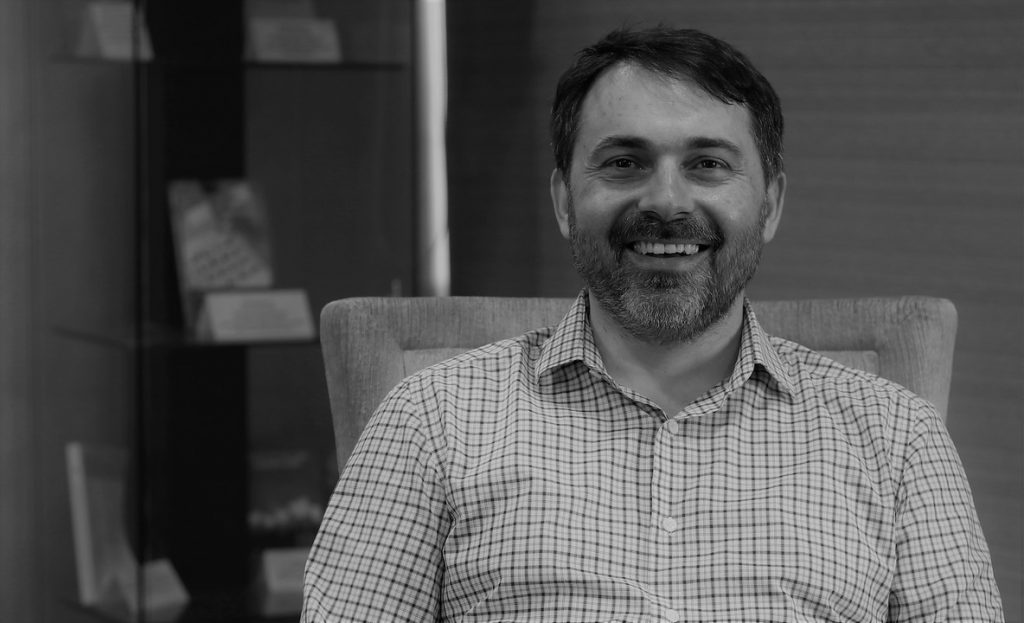
There are legal experts, who write new chapters in legal history, and then there are those who give us a whole book with their path breaking vision. Prof. (Dr.) Cosmin Corendea has done the latter, quite literally. Renowned for initiating and developing the concept of ‘International Hybrid Law’ over a decade ago, his book on the subject – Legal Protection of the Sinking Islands Refugees, is revered by experts, academics and students alike. In his inspiring career he has worked as Associate Academic Officer / Legal Expert at United Nations University (UNU) and shaped policies that will have a long-standing impact on the future. Today, he continues his stellar work in human mobility and climate change to develop policies while imparting knowledge to students of Jindal Global Law School (JGLS) as an Associate Professor of Law. We spoke to the leading academic, policy maker about his pioneering work and his stint with the law school.
Inspiring academic, aspiring policy maker
As an academic, Prof. Corendea has had stints as a lecturer with University of Bonn, Germany and University of Peace, Costa Rica. As an AXA Postdoc Fellow his research focused on implementation of international law in traditional legal systems in South Asia and the Pacific. In his stint with JGLS that started last year, he teaches Refugee Law, Environmental Law, Climate Law and Policy as well as International Law. That impressive profile would suggest that academia is his one true passion. But he admits that if not an academic, he would happily wear the hat of being a policy maker. “It’s something I did for the last twelve years and I haven’t really stopped after coming here. JGLS is getting more involved in policy making around the world. And I have become more involved in policy development on country level, focussing on Asia and South East Asia,” he says about following his passion and continuing his staggering work at JGLS.
Making International impact one policy at a time
Prof. Corendea recently worked on Planned Relocation Guidelines , that made Fiji to become the first country in the world to develop such policy for relocation in response to climate change impacts. According to him, the policy assured that the practitioners and the people involved in this process have very strict ways of following the law in a sustainable and human centered oriented way. He asserts the importance of bringing human mobility idea, migration, displacement and planned relocation in the context of climate change. “Research I have done in the past clearly shows that climate change, human mobility and human rights are becoming one very interconnected concept; a nexus which would be very hard to address separately in the future. So, in that sense, I would say that this policy launched at the UNFCCC Conference of Parties in Katowice, Poland in December last year is based on hybrid approach,” he explains.
International Hybrid Law – the seminal work
You can’t talk to Prof. Corendea and not ask him about his pivotal work on International Hybrid Law, a concept he initiated and developed in 2007. His book Legal Protection of the Sinking Islands Refugees is critical academic literature on the subject today. It has become an important resource material not only for students all over the world but for judicial decisions as well. He takes us through the initial stages of his pathbreaking research till its present-day influence as he says, “The topic was very underdeveloped 12 years ago as I tried to find legal solutions for policy gaps that we had in terms of climate change, mobility and human rights. So International Hybrid Law , which was developed as a research tool was a necessity then. Over the years, it became a concept in international law, that students apply to their research. Today, you can find hybrid approach in the judicial decisions, institutional approaches around the world on the topic of climate change, human mobility and human rights. Of course, it is also observed in policies.”
At JGLS the mission continues
Prof. Corendea stays humble and matter of fact talking about his work although there is a lot to brag about. The attitude helps him stay focused in his dedication to his work, which he has built on after starting his work with JGLS. He is the head of Human Mobility and Climate Change Division, a part of the UN Study Centre at the Law School . His work on Planned Relocation Guidelines for Fiji took form there, as did the recent climate change and human mobility report for Morocco. He calls it continuous work. “I developed a policy for a country with JGLS. When the country adopts it, it becomes law. It’s important to be part of such work and the academic space JGLS offers me is commonly advantageous. Students were involved for the first time in a policy- oriented desk review research, pivotal for developing such policies So, I would say to aspirants, we are here to assist you in constructive ways. We will make sure your future looks bright,” he ends on that positive note.

